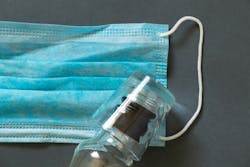Alcohol screening rates dropped substantially during the first COVID-19 surge
New research from Boston Medical Center found that alcohol screening rates dropped substantially during the first COVID-19 surge. Published in Preventive Medicine Reports, the study highlights that during the COVID-19 pandemic, there were increases in unhealthy alcohol consumption and alcohol related morbidity and mortality.
This study examined alcohol screening rates in primary care practices in Boston, MA in the context of the COVID-19 pandemic, from July 2019 through May 2022. Screening rates were mapped, by month, to the number of COVID-19 cases. Alcohol screening dropped substantially during the first COVID-19 surge but steadily increased to baseline between the second and third surges.
This decline was likely due to competing pandemic-related priorities and the transition to telemedicine. During the early stages of the pandemic, urgent care issues were prioritized by both patients and clinicians over routine health care maintenance. Shifting to telemedicine also likely impacted alcohol screening at the clinician- and system-level. During virtual visits, clinicians are often responsible for all aspects of patient care without the assistance of support staff, who regularly oversee and perform behavioral health screenings. Later surges had less impact on screening rates likely due to return of some in-person team-based care, less focus on COVID-related issues during visits, and improvements in telemedicine workflows.
BMC release
